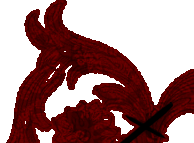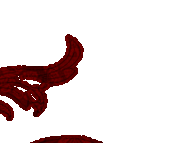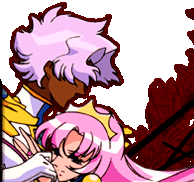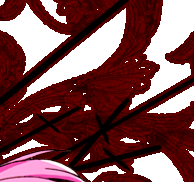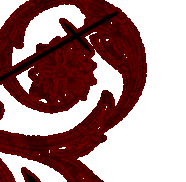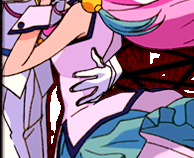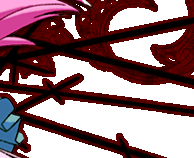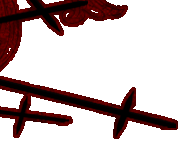

I discovered a comet earlier. It’s new. No one else knows about it yet. But I won’t tell anyone else about it. I won’t even name it. It’s amazing… The feeling of discovering a new heavenly body. You feel as though doing that makes it your property. But what’s in the heavens is in the heavens. It belongs to no one.
…It belongs to no one…
Goodnight, big brother.
Must you still torment me?
-Akio & Anthy, Episode 34: The Rose Seal

For twenty years, this scene has been broken beyond repair. Because in all previous translations, Akio uses "comet" and "star" interchangeably. This is absurd coming from someone who, according to Ikuhara, probably teaches astronomy at the university. I brought this up to our buddy at Nozomi, who clarified, enlightened, and then corrected the translation to what now appears above, and on the Blu-ray subtitle.
Akio begins this speech using suisei, which is explicitly the word for comet. However, he then switches to using hoshi, which is generally translated as "star", but isn't specific beyond "celestial body." (Had I been a Sailor Moon fan, I would have known about this, as hoshi is used to refer to planets in it.) A very conscious choice in the dialogue was translated by word rather than context over and over for twenty years, rendering the intent utterly lost in the translation. As close as I can get to the experience after so long, this is like me getting to analyze a piece of Utena for the first time. It was a fascinating look at something I always knew I wanted to explore, but couldn’t, because it was broken. It’s fixed now.
This scene immediately follows episode 33, The Prince Who Runs In the Night, which ended with Utena and Akio having sex in a hotel room, an event framed by Akio and Anthy as "delivering roses", and alluded to by Akio as "beautiful stars."
Here, at the beginning of episode 34, The Rose Seal, having just had sex with his sister, Akio is in the mood to gloat. He begins to describe having found a new comet. This seems…unlikely. You’ve never seen Akio use a telescope. The entirety of his exploration of space is contained within a planetarium, a representation of the night sky, beholden to the accuracy bestowed by its creator. It’s incapable of letting him find anything. Of course, that’s not a flaw. It’s a feature. Akio is choosing where the stars shine, even if outside of his world, this would not be up to him. The stars are a metaphor, both in the context of the series, and Akio’s own use of them in conversation: the heavenly bodies he discusses are the people he controls. Everything Akio has said relating to the stars or the mythology surrounding them is ultimately about someone in the story, and there is always a contextual clue to indicate this.
Akio will go on to say “Actually, I have no interest whatsoever in the stars.” (Episode 37: The One Who Will Revolutionize the World.) You can take this as him rejecting his own framing device, or you can take him as using the metaphor still: he doesn’t care about people at all. Likely, it’s both. He never shows an interest in space that isn’t clearly bound up in its comparison to people, and he shows somehow even less regard for the people those stars represent. They’re at best playthings, and at worse, just a means to an end.
It’s obvious that Utena’s the comet he has discovered, that no one else knows about. This is an unsubtle reference to "discovering" Utena’s virginity, and taking for himself the one piece of Utena that Anthy could not have "known about" herself. Whether she wanted it or not is far less important than that it’s something Akio was able to deny her. This conversation is as much, if not more, about him and Anthy than it is about him and Utena.
It's interesting to consider whether Akio is aware at all that Anthy’s feelings for Utena could be romantic in nature. The choice of weaponized sex does seem to speak to that, but it’s also probably the move he’d make regardless of the nature of Utena and Anthy’s relationship, since that's his weapon of choice to begin with. Anthy’s refusal to look at the real stars that symbolize this event gets framed rather like jealousy, but it’s hard to say exactly for who or over what. Her reaction is…complicated, despite her complicity implied by her assistance in "delivering the roses.” This is an especially eerie way to reference Akio’s sleeping with Utena: the bouquet in question, red and white roses mixed, follows them to the hotel room, sits on a chair, and is eventually is set in a vase. We see now the intended destination, all along, of the wrapped flowers that are delivered to Akio in episode 15, The Landscape Framed by Kozue. The bouquet is there the first time he's alone with Utena, suggesting Anthy’s awareness and involvement in Utena’s fate, including this rape, has been there from the start.

Akio goes on to discuss Utena: a "comet" he isn’t going to tell anybody about. A comet he isn't going to name. A secret thing that’s yours because you found it… is no small power trip, and if he were talking about a comet, the joy of a discovered secret kept close for a few precious moments before it's shared would be easier to relate to. However, secrecy if clearly not the goal, or not the only one, here, as he's making it abundantly clear who the comet is. The refusal to give it a name is an act of aggression. It's here where the mistake of translation makes his comparison fall apart: comets are not stars.
Comets are temporary visitors in the night sky, they flash brilliantly but never for very long. A brief, dazzling display that moves quickly along on the larger orbit you never see. (Ruka is another comet, shown coming down in the window in one episode, and away in the next.) Stars, for all intents and purposes, are fixed bodies. Things that reliably stay where you expect them to. They aren’t going anywhere.* Akio is reminding Anthy that Utena, sweet as she is, is a temporary visitor in their sky. She may shine brighter than most, but her path will eventually lead her away. Don’t get too attached, Anthy, to a thing that will soon disappear.
To Akio, there’s no point naming her. He only concerns himself with what’s in his domain, and if she’s going to leave it anyway, she can do so namelessly. This is exactly what happens: the students forget her, struggling to recall her name not long after her departure. By refusing to name this comet, he’s rejecting her in advance of needing to do so, anticipating her departure, and planning her erasure. I’m not going to name her, because she isn’t really part of our world. He goes on to say how wonderful and fun it is to discover a comet and then keep it to himself. No one finds comets if they don’t look for them, and if they’re looking for them, they’re doing so out of passion for the hunt. But he’s talking about Utena, making it about how much pleasure he takes in the hunt of innocence, and its subsequent destruction. Though certainly no excuse for his actions, this seems to me like it would be a satisfying preoccupation for the fallen prince, denied his former glory by the endless, fatal demands innocent princesses placed on him. Ohtori Academy could be read, cynically, as an elaborate mockery of a fairy tale world that he has created just to play out this story, over and over.
"But what’s in the heavens is in the heavens." Or more simply: a comet is a comet. On some level, Akio is aware of the nature of the coffin he lives in. He makes reference to the world outside and is to some limited extent in communication with it. He knows within his sphere, time is arrested. He knows, I think at varying levels of conscious awareness, that the world he’s the ends of is not the entirety of the earth. Here he is extending the temporality of Utena’s presence to not just being true for Anthy, but him as well. Utena will leave, and who will be left? Just the two of them, still together under the same sky, though their comet is no longer in it.
The comet belonging to no one is an elaboration of this point, and probably the closest Akio inadvertently gets to a moment of genuine self-awareness. The discovery of a comet makes him feel like it’s his…but it’s not. It’s a comet, and it will leave the sky they live under regardless of what either of them does to it.
He repeats this. It gnaws at him. It strays too close to the subject of his own limitations. This started as a threat that he can ruin this girl, and as he expanded the point, it became tinged with reassurance that Utena is a passing fling for both of them. But Akio, in a hurry to absolve himself of any real culpability, ends up admitting, certainly by accident, that Utena isn’t a passing fling because that’s what he’d prefer. Akio won’t keep her because Akio can’t keep her.
On some level, Akio knows his control is not absolute. This comet that has appeared is not his to keep, and while he may budge its trajectory to his own ends, ultimately he can’t force it to do anything. He can’t force anyone to do anything. He can trick, cajole, coax…but his perception of his own capacity to control the world around him does not line up accurately with reality, and he knows this. Deep down.
Because while illusions may belong to him, reality belongs to no one…
Anthy leaves when she does knowing he’s been made vulnerable by his own contemplation. Not only does she not care to offer any comfort, she is ignoring both his empty threat and his hollow reassurance. After all this peacocking, and the dark place he inadvertently led himself, she tells him by her passivity that, oops, sorry. She wasn’t listening.
Must you still torment me?
Yes. Because I don’t belong to you, either.

The give and take of love and resentment in Akio and Anthy’s relationship reaches levels of toxicity that would make Chernobyl blush. They dance constantly around their codependency, swiping at one another, and then soothing each other in turn. “No one will ever know you as well as I know you.” becomes both a reassurance and a threat on their lips.
It’s Akio that does all the talking, because of course it is, but Anthy wins this round by doing the most terrifying thing she can: she ignores him. Hating him is a glue that binds her to him, and his rubbing her face in what he’s done to their young comet smacks of an attempt to reinforce that: as long as she’s wrapped up in her hatred and resentment of him, she’s not going to be able to move on. Their hostility to one another is heavy with that awareness on both sides: they both know the "love" the other has for them depends on that hatred, and neither really believes it could mean anything any other way. Neither sibling dares invest in the idea that they could be genuinely loved for their own sake, so neither tries.
A fair bit of Akio’s dialogue in the climax of the series also seems geared to elicit contempt from Anthy, seeking this bitterness as a validation of her attachment. There’s a bit of lip service to the idea of them loving one another, but the form that takes is a hostile one, and it’s that hostility Akio is trying to drag from Anthy now. Anthy, knowing why he’s doing it and what he hopes to achieve, denies him…and enjoys it. After all, it’s how she swipes at him in turn, by reminding him that her veneer of compliance, her passivity as the Rose Bride, is a weapon she can aim just as readily at him. Akio sees every day what it does to others, just as Anthy's made to watch what he does to their makeshift prince.
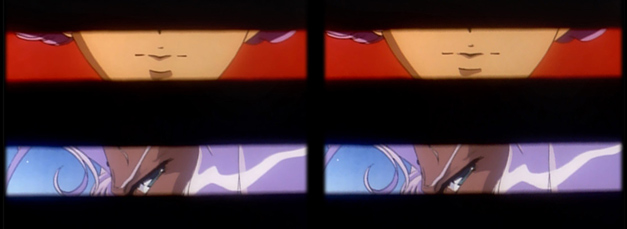
Akio’s seduction of Utena is a military action ending a cold war, and this scene is our first glimpse at what open hostility between these powers looks like. The "Akio Arc" and the "Apocalypse Arc" are not a distinction officially made by the series creators, but the presence of a recap episode implies it, and the shift from one story arc to the next marks a gross change in the tone of Akio and Anthy’s relationship past any capacity either may have to salvage it. Akio is clearly aware what he has done angers Anthy, but he misjudges the severity of her reaction, having let himself be pretty much blind up to this moment to the distance Utena is putting between them.

So why does he change terms? Why not just continue using the term that appropriately describes the subject? Well, I used to think this was done because it sounds better or something, and that certainly could be the case. However, it also creates a double entendre that isn’t exactly necessary to the point, but certainly enriches it. Hoshi is "celestial body," hoshii, with the extended vowel, is "want." They do absolutely sound different in Japanese, however, they don’t sound so different that a Japanese speaker wouldn’t notice their similarity. Consider this:
I discovered something interesting earlier. It’s new. Something that no one else knows about yet. But I won’t tell anyone else about it. I won’t even name it. It’s amazing… The feeling of discovering something new to want. You feel as though doing that makes it your own. But…I want what I want. Though what I want belongs to no one.
Reworded to this, his speech doesn’t radically change in meaning. He’s still gloating about a thing he’s found and enjoyed, and he’s still eventually tripping over an awareness that he can’t keep it. The flavor of it changes though: it becomes world-weary, like someone aware of how infrequently a new thing to interest them comes along. That novelty is rare, and Akio, selfish creature that he is, would make it belong to him if he could. He can’t, though…and why is that?
Perhaps he’s aware that the very act of possessing this comet ruins what he likes about it. Under any condition where Utena becomes his possession, she stops being the innocent, spirited little prince he’s having such fun playing with. Possessing her would destroy what he enjoyed in the first place. This, by the by, is a conundrum he shares with Touga. This interest, this distraction, is one that is entirely impossible for him to keep. It will elude him, and the satisfaction he feels at the destruction of a noble thing will be fleeting, leaving him only with the wreckage of Anthy’s anger, and none of the pleasure he feels now.
This is absolutely not to say I think Akio is remotely in love with Utena. I actually kind of had a hard time typing that sentence even. He enjoys the pursuit, perhaps, but more importantly: Akio lives to bring others down to his level. If everyone else turns out to be total garbage, it validates his decision to take the easy way out. To be garbage himself. Utena interests and pleases him so because she has that much farther to fall, and he appears, against his better interests given Anthy’s reaction, compelled to push her. But if Dios’ fundamental ambition was to save others, it seems reasonable to assume Akio’s is the opposite: he’s compelled to destroy what innocence crosses his path, and whether that is out of the programming inflicted on him by his very nature as a living archetype, or whether that’s a retaliation against others for the wounds he perceives have been inflicted on him and what’s his, meaning Anthy…I suppose depends on your reading of what exactly he and Anthy are. The former has been used in the past to frame Akio as unable to help himself any more than Dios does. I’ve never liked that reading; it removes the burden of responsibility he has for his actions by removing his agency in deciding what he does or doesn’t do. That just feels cheap to me, utterly out of line with the richness and complexity to be found literally everywhere in the series.
I think the world Akio and Anthy inhabit, that they’ve created for themselves, is such a dark place because both of them feel most comfortable there. Akio lashes out madly in hostility toward literally everyone that crosses his path, and though it is smoothed over and made attractive by his methods, it remains that Akio structures everything around him to service this ambition. He misleads, hurts, and ruins others, and does so with the point of view that he has a right to this. ("Foolish mortal" is translated this way because the word he uses, ikimono, literally implies minimal sentience.) The vengeance he takes on the world seems almost an addiction at this point, one he indulges to his own detriment as Anthy shifts from irritation to far beyond tolerance.

This moment of reflection, where he admits, albeit briefly, that the toys he plays with aren’t his own, is one of very few moments in the series where you could even attempt to read his behavior as self-aware or something he struggles with. It suggests on some level Akio is aware that the world at large buzzes about without him, and that his petty tortures are ultimately meaningless, either as a means to real satisfaction, or as revenge for a wrong as great as the one inflicted on him. People are not his in the end, and they are capable of walking away from a garden he cannot. This is quite an insight for him to have at the beginning of such open hostilities between him and his sister. What has been obvious to us as viewers for a very long time is starting, maybe, to get through to him: Anthy is capable of leaving him. Not threatening. Not using the distance as a bludgeon…but actually leaving.
If Akio could possibly regret his actions, this would be the moment to do so. He begins by gloating, but ends this dialogue aware that something went wrong with this particular "discovery"…and his greed for its destruction, his selfishness, and his resentment toward all things innocent and pure are all satellites orbiting what I think is the biggest insight Akio risks having here. Akio is not entirely sure what he just did to this girl will be without consequences. That he might have gone a bit too far, a bit too late, and left himself with an Anthy he can’t be nearly so sure of anymore.
The open hostility between the siblings from this point forward stems from that spiraling trust he has in his grip on what, so far as he believes, sustains him. The game played now aims as much to sever Anthy from her attachment to this little creature as it does to creating a prince out of her. Akio is becoming afraid.
 |

